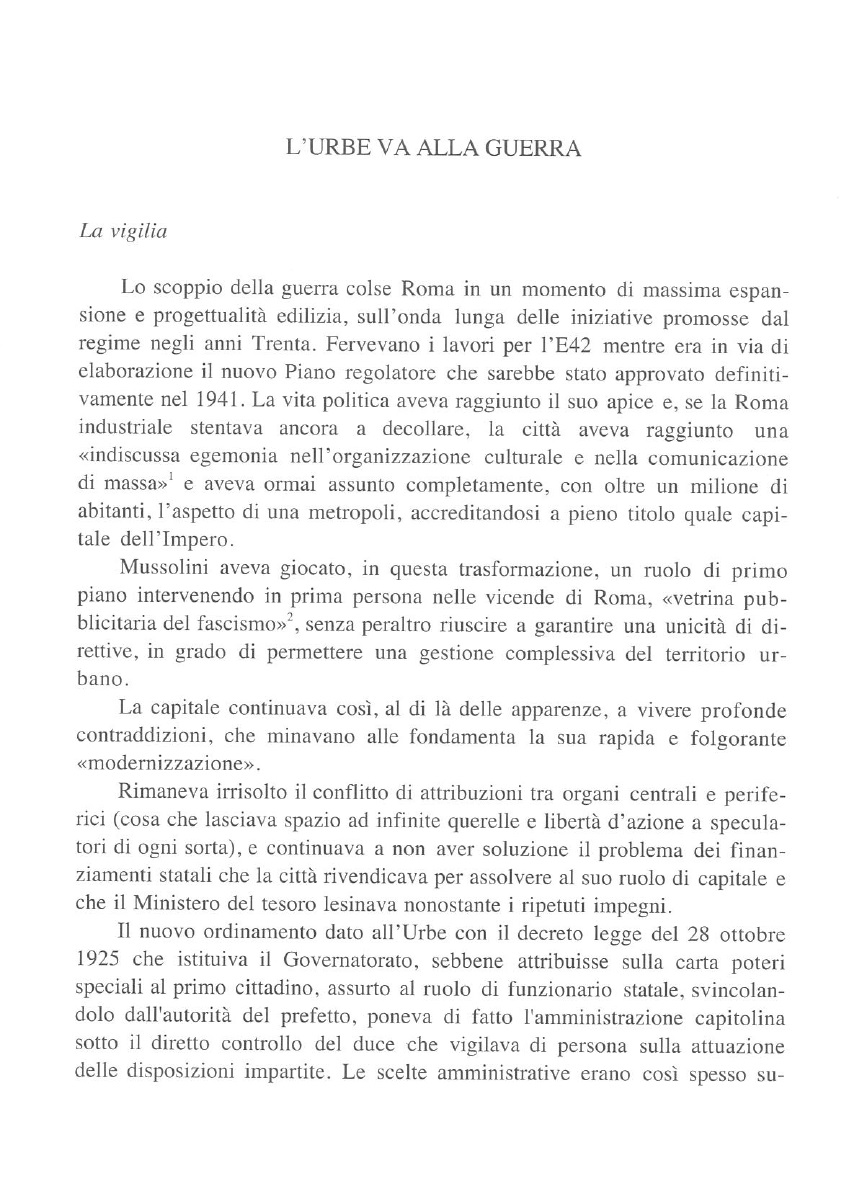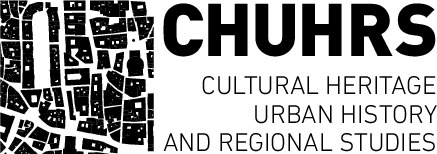
- Roma moderna e contemporanea
- Codice etico
- Editore e amministrazione
- Organi scientifici
- Indicizzazione e valutazione
- Norme editoriali
- Ultimo fascicolo
- Indice dei fascicoli
- Indice degli autori
- Articoli Open access
- Call for papers Numero monografico
- Abbonamenti
- Info recensioni
- Trasferimento di copyright
- Richiesta di autorizzazioni
AMBIENTE DI TEST
Indice dei fascicoli
ROMA MODERNA E CONTEMPORANEA » 2003/3 » Roma in guerra, 1940-1943 (ESAURITO)
ISSN 1122-0244
Salvatori Paola
L'Urbe va alla guerra
pp.403-429, DOI 10.17426/89874
Articoli
Abstract: THE CITY GOES TO WAR
During the war years, the living conditions in the capital deteriorated slowly but continuously as internal conflicts reached their climax and Fascism, far from attempting to resolve them, served to worsen them in many ways. The autonomy and authority of the governorship, already of little importance during the entire Fascist period, underwent further downsizing. This, combined with the increasing numbers and varieties of organizations operating under the party or the different government ministries, allowed for growing chaos and rampant corruption. As a result the population was forced to intent strategies for survival, collective or individual. Nor was the city administration capable of guarantying public services or planning emergency measures adequate to the wartime situation. Instead, it did no more than execute its bureaucratic-administrative duties, resolving few, if any of the needs of the moment. This resulted in a serious moral and physical deterioration than set the city back about thirty years.

Referenze
- download: n.d.
- Url: http://www.chuhrs.eu/?contenuto=indice-dei-fascicoli-rmc&idarticolo=358
- DOI: 10.17426/89874
- citazione: P. Salvatori, L'Urbe va alla guerra, "Roma moderna e Contemporanea", XI/3, pp.403-429, DOI: 10.17426/89874
